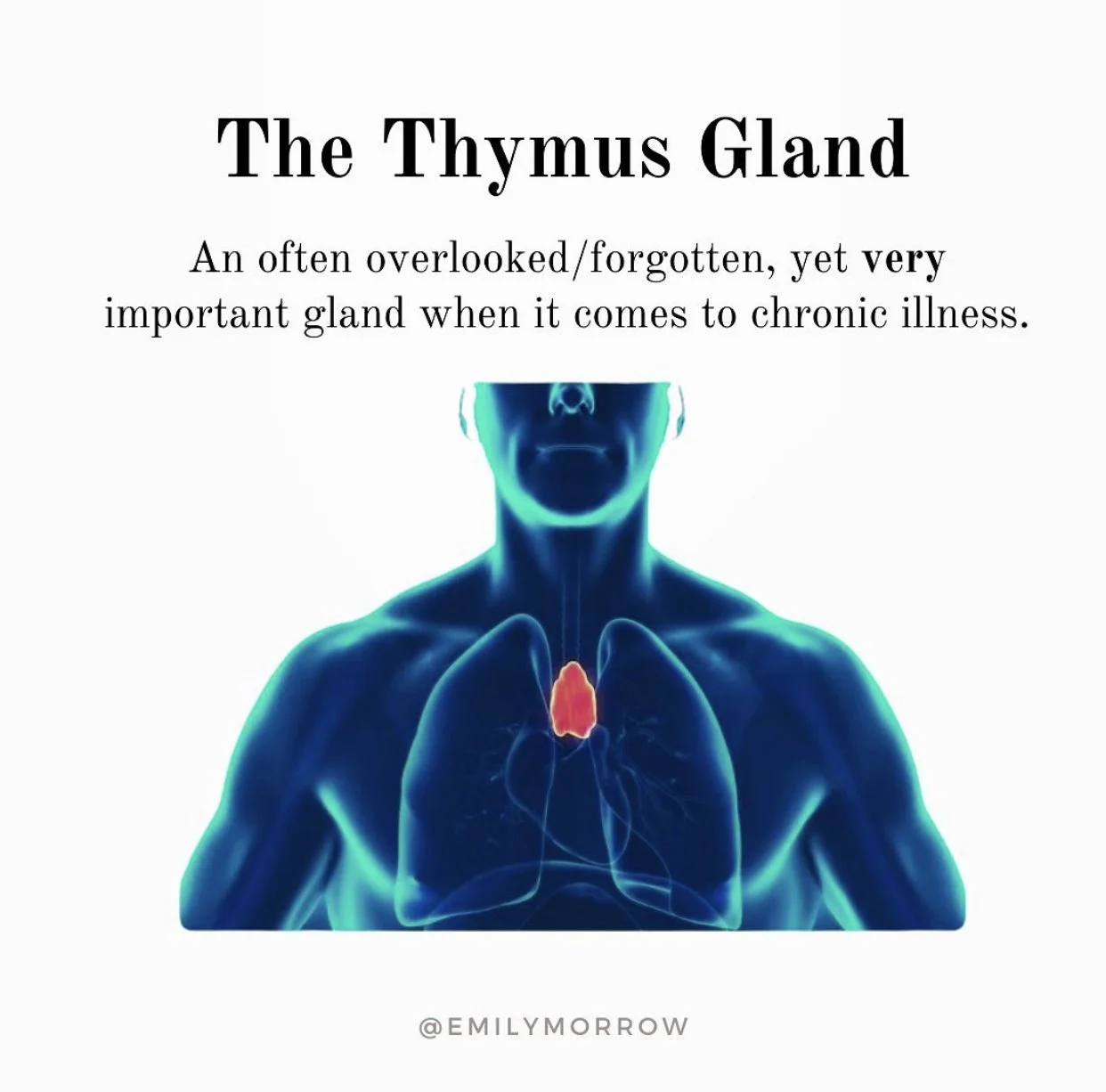The Thymus Gland: Roles, Signs of Dysfunction & Support
The Thymus is an important gland in the human body that often gets forgotten, yet its function and production of T-cell lymphocytes is critical for keeping a balanced immune system and protecting the body from foreign invaders such as bacteria, lyme, viruses, mold, mycotoxins, parasites, chemicals and toxins. These T-cells are also capable of identifying and attacking cancer cells.
Thymus. Image Credit: Nerthuz/Shutterstock.com
Thymus: The Forgotten Gland
The Thymus is an important gland in the human body that often gets forgotten, yet its function and production of T-cell lymphocytes is critical for keeping a balanced immune system and protecting the body from foreign invaders such as bacteria, lyme, viruses, mold, mycotoxins, parasites, chemicals and toxins. These T-cells are also capable of identifying and attacking cancer cells.
We often hear about the thyroid, which is responsible for regulating your metabolism; the thymus on the other hand, produces a hormone known as thymosin that helps transform white blood cells, or lymphocytes, into T cells. Once the T cells are mature, they move to your lymph nodes and help support the immune system.
Thymus gland issues can lead to too few T-cells that are needed to protect ourselves. This leads to something called immunodeficiency, which increases our susceptibility of chronic illness.
Thymus gland issues can also lead to too many T-cells in response to excess foreign invaders and then we end up with our own cells attacking the body, which overtime can lead to autoimmune disease(s).
Signs & Symptoms of Thymus Gland Dysfunction
Directly from the article Thymic Hyperplasia:
A comprehensive history and a detailed physical examination are necessary to evaluate patients with thymic hyperplasia, focusing on its signs and symptoms. Thymic hyperplasia is usually discovered incidentally after imaging is performed for an unrelated chest complaint. The thymus is located in the anterior mediastinum closely related to airways and major blood vessels. Thymic hyperplasia can compress these structures, causing the following symptoms:
Shortness of breath
Dysphagia
Cough
Loss of appetite
Weight loss
Chest pain
The thymus is located near the superior vena cava, and a massive true thymic hyperplasia could compress it, leading to superior vena cava syndrome.[8] The superior vena cava syndrome would present as:
Swelling of face, neck, and upper chest
Cyanosis
Headaches
Dizziness
Lightheadedness
Dyspnea
Venous dilatation over the trunk
Facial Flushing
Stridor
Neurologic signs
Additional info on diagnostic tools and resources can be found directly within the article Thymic Hyperplasia
What Reduces Thymus Gland Function?
Malnutrition/Lack of Absorption
Too Little Calories/Starvation/Chronic Restrictive Dieting
Alcoholism
Prolonged Physical Stress - infections/toxins can also be a physical stressor
Prolonged Mental Stress - chronic high cortisol levels directly lower thymus gland function. “Some of the hallmarks of this thymic response to stress include a reduction in double-positive (DP) thymocytes and reduced output of naïve T cells to the periphery; both of which can significantly reduce the size of the thymus gland.” - Source
Basic Thymus Gland Support
Seal leaky gut so you can properly absorb your nutrients and balance gut flora
Eat sufficient calories
Reduce or eliminate alcohol consumption
Get lab testing to see what physical stressors could be contributing to thymus issues (blood work, OAT, HTMA, Scans, mycotox panels)
Really be honest with yourself about mental/emotional stress/trauma; somatic work can be helpful for some people; others do well with counseling/therapy; and often, we just have to give ourselves permission to rest, slow down, set boundaries, say no, build in more joy based ways of living, seek out and ask for help
Ensure adequate thymus and immune supportive nutrients:
Vitamin A enhances TGF-β-dependent conversion of naïve T cells into regulatory T cells.
Vitamin C plays roles in production, differentiation, and proliferation of T cells.
Vitamin E enhances lymphocyte proliferation and T-cell-mediated functions
Zinc can restore thymulin activity. Zinc deficiency causes thymic atrophy, which leads to low numbers of T cells, and creates an imbalance in T helper cell subsets, with a shift towards Th2.
Iron is important in the differentiation and proliferation of T cells.
Copper plays roles in differentiation and proliferation of T cells.
Selenium helps in differentiation and proliferation of T cells.
B vitamins facilitate production of T cells.
References:
A Review of Micronutrients and the Immune System–Working in Harmony to Reduce the Risk of Infection
Immune Function and Micronutrient Requirements Change over the Life Course

